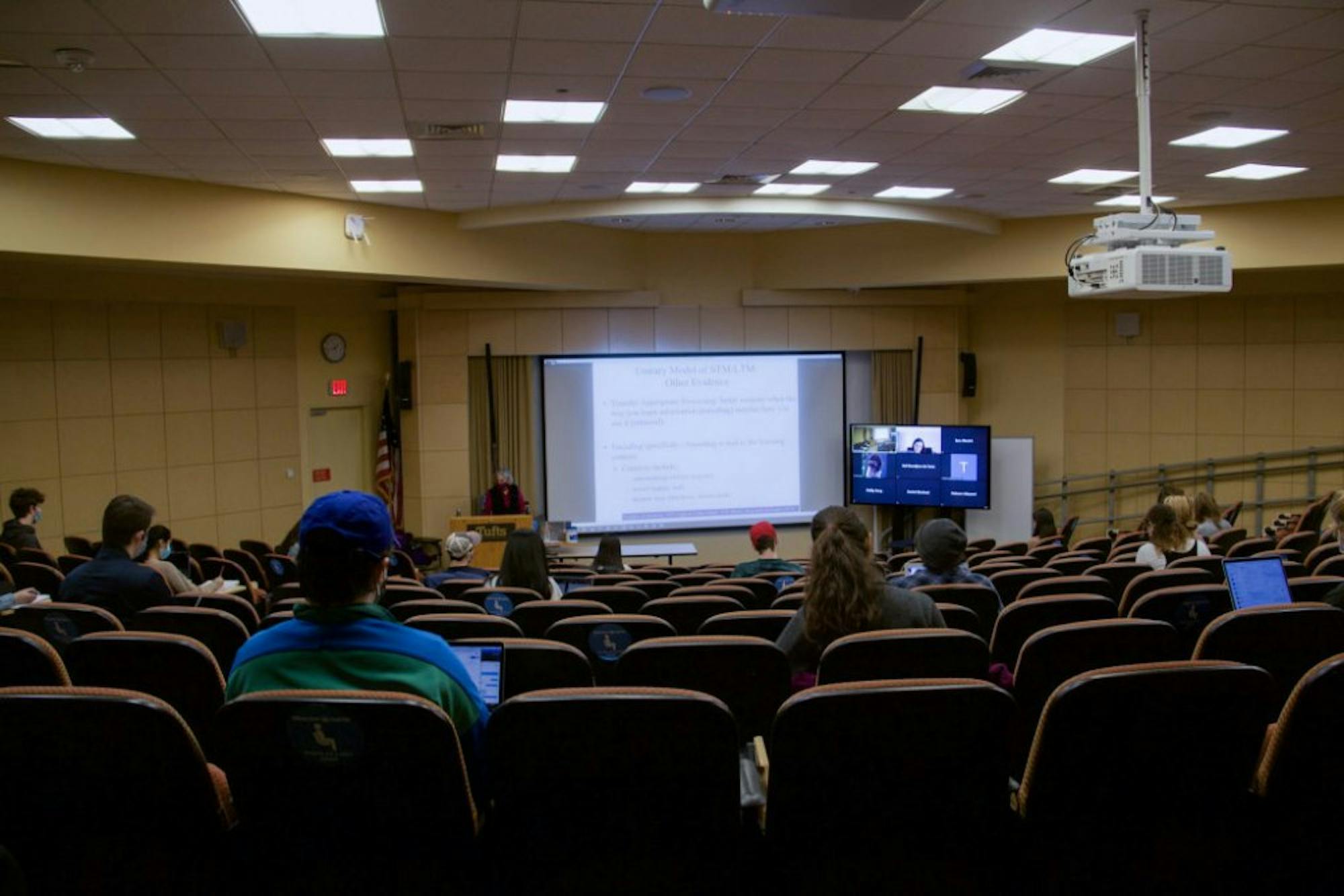Widespread disparities in compensation and workload exist among undergraduate teaching assistants in the Schools of Arts and Sciences and Engineering. Some undergraduate TAs are compensated through semester-hour units, while others are compensated through pay stipends and still others through hourly pay.
Miranda Feinberg, an undergraduate teaching assistant for the film and media studies program, said in an interview with the Daily that she is not paid for her work. Feinberg, a senior who TAs FMS30, a hands-on, introductory film practice course, said that she is compensated instead through semester-hour units.
She was asked as part of her teaching assistant job to sign up for FMS98, a course designed specifically for filmmaking TAs, through which she receives two credits. The course does not meet formally.
As a TA, Feinberg is responsible for attending a 2.5-hour lecture on Tuesdays and running a 2.5-hour lab along with her co-TA on Thursdays. The lecture focuses on theoretical elements of filmmaking, while the lab is practical. Feinberg said she typically spends part of the lab teaching — usually expanding on a concept introduced in the lecture — and the other part answering questions and monitoring students as they work on assignments. Feinberg also spends one to two hours each week outside the lecture and lab on preparation and, occasionally, grading.
“It is a big time commitment, and I think that if I were to be in a position where I needed to get a job during the semester, it would not be possible while also doing this,” Feinberg said. “I think it’s a lot of work, where it does warrant some sort of payment.”
Despite concerns over the position’s compensatory structure, Feinberg said she has learned a great deal from her position as a TA, which has in part made up for the lack of pay.
“[The class] is helpful for the TAs as much as it is for the people actually taking the class,” she said.
Natalie Minik, a professor in the film and media studies program who teaches one section of FMS30 and helps to oversee FMS98, said FMS98 is an elective "intended to give our advanced production students a chance to apply the skills and knowledge they have acquired during their time at Tufts in a teaching setting."
"We are working as a program to standardize this experience for all our TAs who participate in this elective," Minik said. Minik also said the film and media studies program was recently approved to hire a part-time production manager who will oversee the labs and take "much of the burden off undergraduate TAs."
Other undergraduate TA positions in the Schools of Arts and Sciences and Engineering are structured differently.
Several undergraduate TAs in the computer science department reported that they are paid an hourly wage of $14.50.Brendan Amorin, a senior and one of the TAs for CS15, said he spends between five and 10 hours per week on the job, either in office hours, lab or grading assignments.
Silvia Wang, a junior who is a teaching assistant for the same class, said she typically spends between 12–15 hours per week on the job. Wang, who is in her second semester as a TA for the course, is a "lab lead," which means she is responsible for spearheading lesson prep for the lab section that she and another TA oversee.
Wang said she enjoys her role as a TA and is happy to be a part of the community made up of the approximately 40 CS15 TAs.
While some undergraduate TAs are paid hourly, others receive a fixed pay stipend for the semester. Meghan Schroeder, a junior who is a teaching assistant for EC05, will receive a $4,000 stipend for her work as a TA this semester. She spends six to seven hours per week on the job, which is split between leading recitations, answering student questions in office hours and grading. Schroeder is one of eight TAs for the course. She does not have to log or keep track of her hourly work.
In a joint statement, Christopher Helmuth and James Sarazen, the administrative deans for the Schools of Arts and Sciences and Engineering, respectively, said the roles and support for TAs differ depending on the school, department, assignment and available funding, among other factors.
"Every school tries to provide opportunities to students that are academically engaging and provide support for the student’s academic program," they wrote.
This article is part of an ongoing investigation by the Daily into disparities in TA compensation among different departments.
Clarification: This article has been updated to reflect a comment from Professor Natalie Minik, who teaches a film production course and oversees FMS98.
Disclaimer: Miranda Feinberg is an assistant copy editor at The Tufts Daily. Miranda was not involved in the writing or editing of this article.






